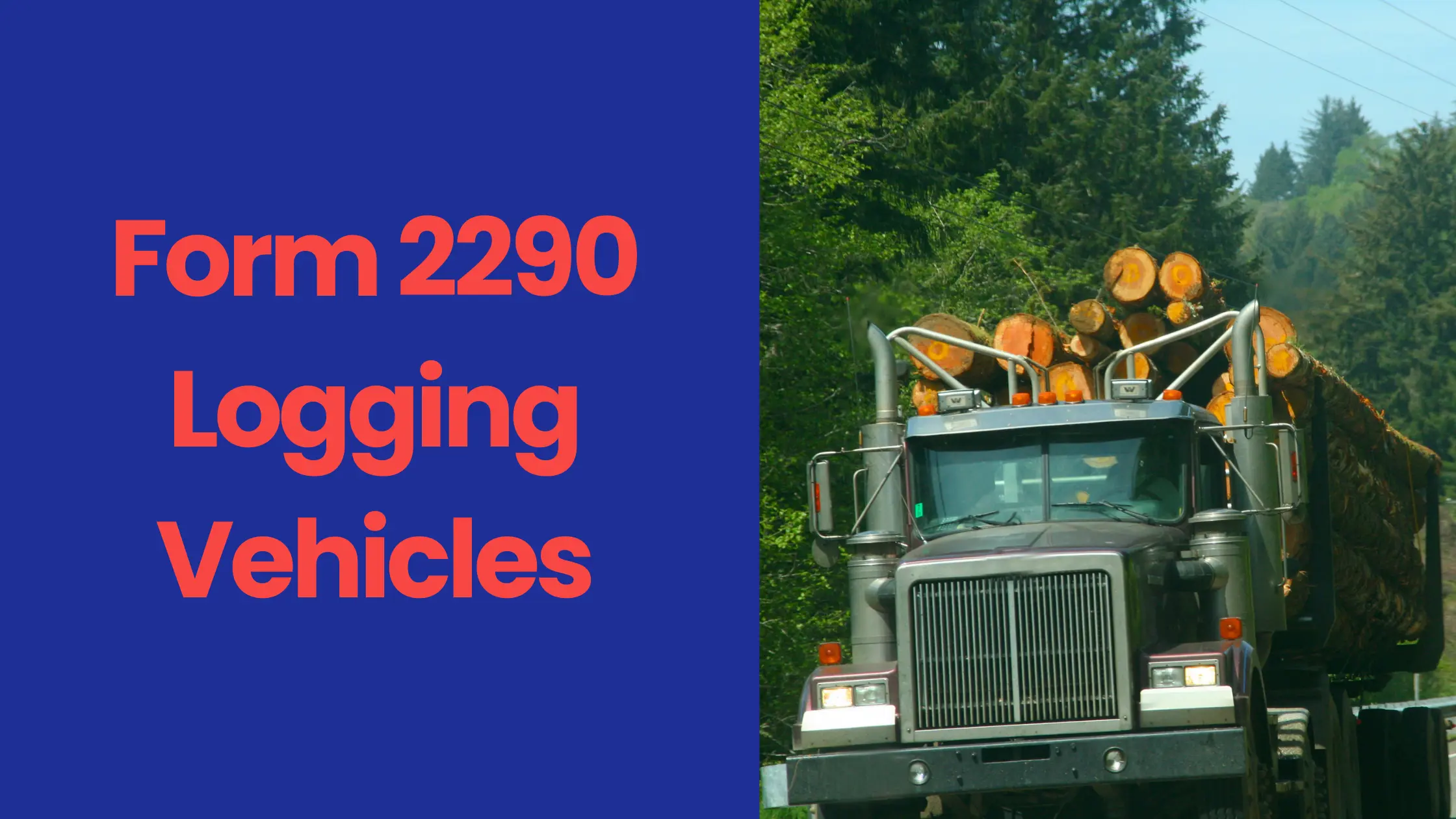09-04-2024
Form 2290 for Logging Vehicles
What does logging vehicles mean?
Logging vehicles are used exclusively to transport materials harvested from forests, such as timber, lumber, charcoal, plywood, veneers, and poles. These vehicles carry both raw and processed materials, including items milled or chipped on-site before transport. They are essential in moving forest products from the site to processing or distribution locations.
How is a vehicle declared as a logging vehicle in Form 2290?
For a vehicle to be classified as a logging vehicle, it must meet the following criteria:
Exclusive Use for Transporting Harvested Products: The vehicle must be used solely to transport harvested products to and from a forested site during the tax period.
Proper Registration: The vehicle must be registered as a highway motor vehicle specifically used for transporting harvested forest products, in accordance with the state laws where it is registered.
These criteria ensure that the vehicle is used primarily for logging purposes and is recognized as such under the applicable tax regulations.
Is Logging Vehicle and Agricultural Vehicle Same?
Logging vehicles and agricultural vehicles are not the same, although they both involve transporting goods related to natural resources. Here are the key differences:
Purpose: Logging vehicles are specifically used for transporting harvested products from forest sites, such as timber and wood products. In contrast, agricultural vehicles are used for farming activities, including harvesting and transporting agricultural goods like crops, feed, seed, and livestock.
Mileage Limits: Logging vehicles have a mileage limit of 5,000 miles per year, while agricultural vehicles have a higher limit of 7,500 miles per year.
Registration: Under state law, logging vehicles must be registered as highway motor vehicles used for transporting harvested forest products. Agricultural vehicles, on the other hand, are registered as highway motor vehicles designated for farming purposes.
These distinctions ensure that each type of vehicle is classified and regulated according to its specific use.
Do we have a different tax rate for Logging Vehicles?
Yes, logging vehicles are subject to a lower tax rate compared to other heavy highway motor vehicles. The base tax amount for heavy highway vehicles starts at $100, while for logging vehicles, it is reduced to $75. However, the tax amount increases based on the gross weight of the logging vehicle.
Refer to the table below for a detailed comparison of tax rates based on vehicle weight:
These reduced rates for logging vehicles recognize their specialized use and often lower mileage, aligning the tax burden with their specific operational characteristics.
This is why Form 2290 includes an option to indicate whether a vehicle is a logging vehicle. Based on this designation, the tax amount due during filing will vary, with logging vehicles benefiting from a reduced tax rate compared to other heavy highway vehicles. This differentiation ensures that the tax paid accurately reflects the vehicle's use and meets the appropriate regulatory requirements.
When is Form 2290 due for Logging Vehicles?
The due date for filing Form 2290 for logging vehicles is the same as for any other vehicle: it is due on the last day of the month following the month the vehicle is first used on public highways. For example, if your logging vehicle is first used in April, the Form 2290 must be filed by May 31.
Typically, Form 2290 is due annually by August 31st. However, for 2024, the due date has been extended to September 3rd. If the due date falls on a weekend or a legal holiday, you must file by the next business day.
These deadlines ensure that vehicle owners comply with tax regulations in a timely manner, avoiding penalties for late filing.
For more information on due dates and the consequences of missing them, please refer to our blog on the Consequences of Ignoring Form 2290 Filing Deadlines. This resource provides detailed insights into filing requirements, penalties for late submissions, and the importance of staying compliant with IRS regulations.
How to file Form 2290 with SimpleForm 2290?
Create Account/Log In: Sign up or log in with our website
Enter Business Details: Provide your business info, tax year, and first use month (FUM).
Add Vehicle Details: Enter your VIN and taxable gross weight.
Logging Vehicle: Select "Yes" for logging vehicles; the reduced tax is automatically calculated.
Complete Filing: Choose a payment option and submit your filing.
Receive Schedule 1: After IRS acceptance, receive your stamped Schedule 1 via email or access it anytime from the dashboard.
This ensures a simple and efficient Form 2290 filing process!
WRAP:
By reading the blog, you'll learn about logging vehicles, how they differ from agricultural vehicles, the applicable tax rates, due dates for filing, and the filing methods.
File your 2290 Online with us and save your money!
